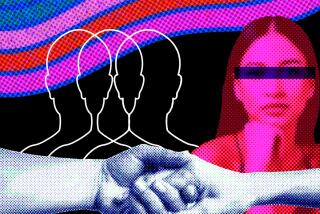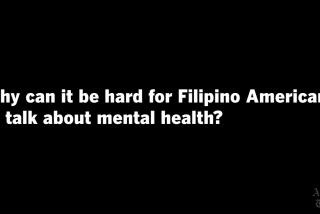A Warning Against Developing a Dependency--on Buzzwords
- Share via
If you think you’re a product of a dysfunctional family or that you’ve become a co-dependent, Kathleen Corbett has a quick piece of advice for you: Relax and take a number; you’re probably OK.
“Where is that functional family?” said Corbett, a clinical psychologist with a practice in Irvine. “I haven’t seen one yet. Families are made up of people, and people are imperfect. At various stages of a family’s life, things are going to happen that are dysfunctional. Most of us have come from families that are dysfunctional in one way or another.”
And co-dependency?
“I’m finding that I’m getting a lot of patients lately who are saying, ‘What am I hearing about dysfunctional families and co-dependents? I think I must be one.’ But normally a person doesn’t really know what that is. Co-dependency crosses a fine line from being a normal kind of dependency in a relationship to a detrimental one. But we depend on a lot of people at all stages of our lives.”
Corbett doesn’t care for quick and easy classification in human analysis and, as a result, is no fan of pop psychology. She reserves a particular dislike for psychological buzzwords, terms that catch on with ease not just in the counseling professions but in general parlance. It bothers her, she says, when a patient worries that he or she is developing the symptoms of co-dependency because she believes that marriage involves depending on one’s spouse in many ways.
Corbett’s answer, in effect, is: So what? Just as long as it’s not in all ways.
“Co-dependency, the way it’s used now,” she said, “is when dependency becomes harmful to either partner or both of them. When one person starts depending solely on this other person, that keeps the person who is depending in a helpless role. It keeps them from growing and reaching out and doing other things in their lives.
“And if something happens to the other person, they fall apart. They feel as if they can’t write checks for themselves, for instance. They depend on that other person for all their happiness.”
The common denominator in both family dysfunction and personal co-dependency, said Corbett, is pain--specifically, chronic pain. The often-predictable problems that throw wrenches in the family machinery for a time--adolescent rebellion, resentment of one or more family members over the new baby, a transient midlife crisis--aren’t enough for Corbett to call that family dysfunctional.
However, a parent with an alcohol addiction, or a child slipping into drug use “could be the basis of a completely dysfunctional family,” said Corbett. “If someone who is addicted is living with chronic pain, that pain is going to affect every member of that family.
“Chronic pain reaches out to every family member. When I treat one person, I have the whole family come in to realize what their role is in the healing process of this person and how they can go about healing themselves.”
The fact that people can heal their psychological wounds independent of members of their families, can rely on themselves for the necessary help, is something that Corbett says can be difficult if one embraces pop psychology labels too enthusiastically.
“Labeling everybody with just a few symptoms can be very dangerous,” she said. “Some people really like them, though. I’m very cautious about labeling any of my (patients). If you label them, they’re going to live up to those symptoms.”
It can become too easy, she said, for a patient “to cop out and say, ‘Well, I’m just from a dysfunctional family. I can’t do anything about my problem,’ ” said Corbett. “As adults, they need to say, ‘OK, I have to get out of the past now. What can I do today that’s going to make me a better person tomorrow?’ It’s so much easier to blame mom and dad or grandma or Aunt Sally for what our problems are today. Are we just copping out to these pop phrases, or do we need to look at what our role is in this and help ourselves?”
Ideally, said Corbett, that help should be directed by a professional counselor rather than a trip to the bookstore. Many self-help books, she said, can be a minefield of pop psychology and the too-pat labels she tries so hard to avoid.
“I think a lot of people go to these bookstores, and there are hundreds and hundreds of books, and they keep reading because they want help so desperately and then they come in here and say, ‘I really must be crazy because I can’t do what the books say. I really must be emotionally sick,’ ” said Corbett. “That’s not true. Change takes time and an outside person to help us find what our problems are and get through them and get on with our lives. It really isn’t as easy as some of the books say.”
Also, she said, anyone considering joining a formal support group should consider that “some of the groups that are out there are not being led by (psychological) professionals. They’re where some of these mistaken words are coming from.”
The overuse of the word co-dependency, in particular, said Corbett, has caused many emotionally healthy--but possibly confused--people to believe it has struck them.
“In a family unit,” said Corbett, “the members do rely on each other for many needs, and as the needs change, the dependency changes. Parents start instilling morals and values in their children from birth, thus the conditioning process starts. Then comes siblings, grandparents, teachers, preachers and lawmakers who also condition our behavior until we die. Conditioning and relying on others for support does not necessarily connote something bad. The relationships can be symbiotic where there is mutual benefit.”
Still, said Corbett, if counseling is needed, it is the job of the counselor to persuade the patient that the pigeonhole he has placed himself in is anything but permanent (particularly if that placement is a result of the patient’s belief in the latest invention of pop psychology). The idea, she said, is for the patient to realize, once again, that within the confines of an ever-changing life, he is unique.
“You try to give them new ways to think, ways to learn to stop the negative garbage so they can take the ball and run with it,” Corbett said. “We’re always in flux all our lives, and we’re always reaching for perfection, even though we’ll never make it.”


